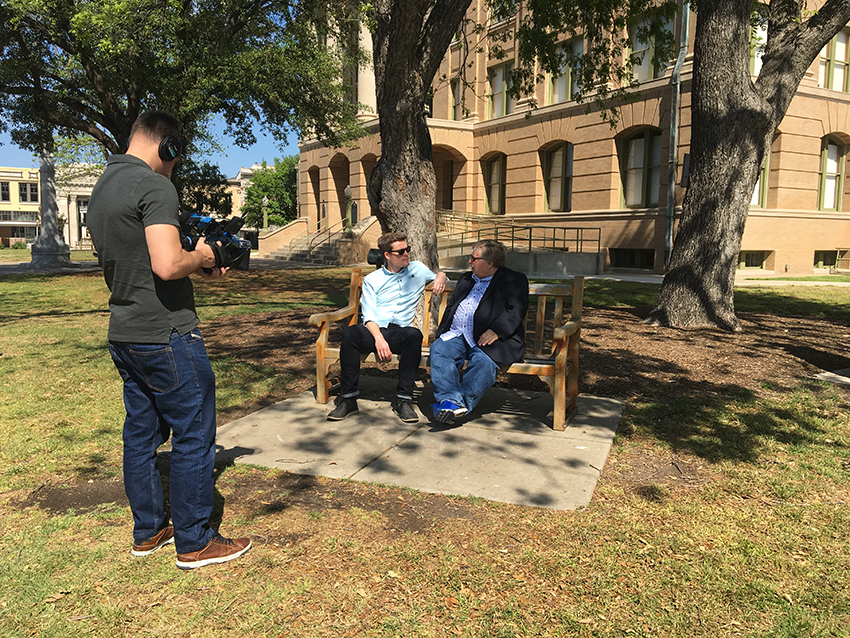The new web series ‘Hot Mess’ creates a space for honest conversations about climate change and its impacts.
PBS Digital Studios launched ‘Hot Mess’ on April 18 — just in time for Earth Day — and has already garnered over 24,000 subscribers on YouTube. It is hosted by UT alumnus and biologist Joe Hanson, along with environmental journalist and animator Miriam Nielsen and ProPublica reporter Talia Buford.
Hanson, who received his Ph.D. in cell and molecular biology from UT in 2013, is also the creator of the YouTube series ‘It’s Okay to be Smart,’ which explores the fun and creative side of science. Conversations about climate change in this YouTube channel were the spark that led to the creation of ‘Hot Mess.’
According to Hanson, while more than half of Americans believe in climate change and are concerned about it, only one in five of them have conversations about it.
“These aren’t people who deny it,” Hanson said. “These are people who actually care. They just aren’t interacting with it. They maybe don’t have anyone in their community to talk to about it. We are trying to reach those people and showing them that this isn’t just relevant to people who are vegan, or people who drive an electric car. This is relevant in everyone’s life, no matter what you do.”
Hanson called climate change the “perfect bad problem” because it is slow, invisible and hard to perceive changes in on a day-to-day basis. This makes it difficult for people to internalize it unless they live in areas that have been drastically affected by climate change, such as disappearing islands. Moreover, people have difficulty focusing on problems that are far down the road.
To tackle this, one of the main goals of ‘Hot Mess’ is to have a place where people can have honest conversations about climate change. Hanson describes YouTube as the perfect place to do that because of its social nature, where people can comment on videos or share on social media and talk about them with friends.
“Part of our goal is to just be talking about this topic in as clear and accessible ways as we can,” Nielsen said. “We can’t necessarily make what’s happening in the atmosphere feel real to people, but the more people are talking about climate change, the more people will find avenues into it on their own.”
A secondary goal of the show is to help remove partisan labels when people converse about climate change.
“One of the other big goals is to tell stories and show people that if we erase the labels and how (we) filter information based on those labels, what would (we) really feel about it?” Hanson said.
Nielsen suggested that fellow science or climate communicators consult as many people as possible when working on a project, including people outside the field. While it can take longer to publish something when talking to more people, she thinks it is worth it because it leads to better and more inclusive content.
“People who talk about science are really excited about it,” Nielsen said. “We tend to get really amped and into it. (But it can) isolate people who have never felt welcome in that space. Whenever I’m trying to come up with a new idea for a piece or a video, I always try to talk to my friends who aren’t in science because it’s important to find other people’s perspectives.”















